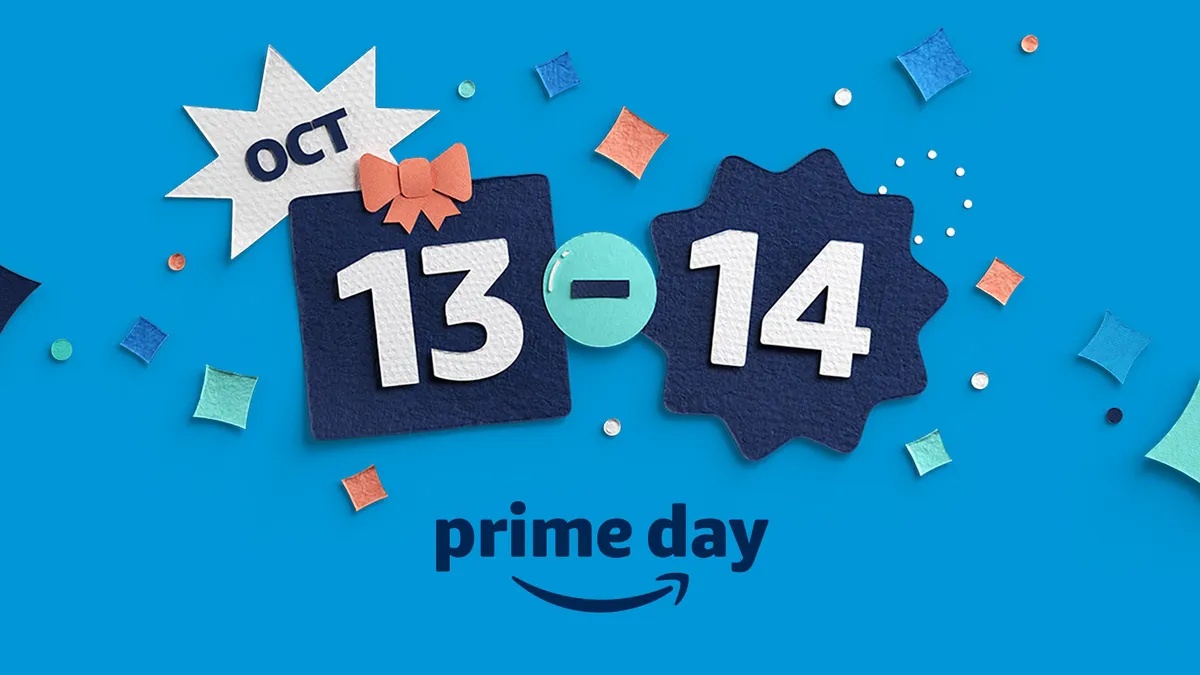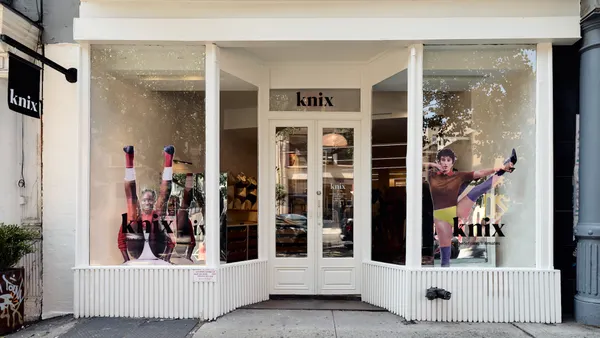Dive Brief:
- Amazon has set an official date for Prime Day 2020: Oct. 13-14.
- The announcement comes after Amazon, responding to the COVID-19 crisis and explosive demand growth, delayed the event, which typically is held in July.
- The October date positions Prime Day this year to be part of the holiday shopping milieu, as retailers and analysts anticipate a longer season with an earlier start given concerns around the pandemic.
Dive Insight
Retail's "Black Friday in July" didn't come this year. As consumers navigated the pandemic, they went online to shop more than ever, putting stress on supply chains and logistics networks. Amazon responded in the early months of the pandemic by pulling back on nonessential deliveries, with consumers focused on keeping their homes stocked with household basics and food in the days of stockpiling and empty shelves.
The e-commerce giant delayed its Prime Day as it tried to keep up with demand. The second quarter brought a year-over-year increase of product sales of around 40%, to more than $50 billion. In the spring, the company added some 175,000 jobs to meet the demand surge. Earlier this month, it announced another 100,000 jobs in its fulfillment and logistics network as it ramps up for the holidays.
Amazon is well-positioned for massive sales booms in the latter part of the year, as it merges Prime Day and the holidays. This year for Prime Day, Amazon is highlighting new Echo devices, as well as its Amazon Music subscription, Amazon Fashion (with discounts on brands such as Vineyard Vines and Shopbop), the company's private label brands, home goods and toys, among other products and services.
Amazon also has deals centered on small business that includes a "Spend $10, Get $10" promotion for those buying from select small businesses selling through Amazon's Marketplace platform, as well as a curated collection of brands and products sold by smaller sellers on its own site.
Other major retailers, including Target and Walmart, have signaled that they plan to launch holiday-themed discounts earlier this year as the industry tries to navigate the season defined by COVID-19. Walmart's own data shows that 87% of its customers plan to seek out deals before Black Friday this year. The retailer has said it plans to launch discounts earlier, but has not released details yet.
Target has made similar announcements. Both Target and Walmart have announced that they will close for Thanksgiving this year and indicated that Black Friday will look different. The traditional Black Friday is certain to go through a major transformation this year, but it's still not clear what exactly it will look like.
It's a good bet that Black Friday itself will lose some relevance this year as shopping starts earlier. Consulting firm AlixPartners, in fact, has called the normal November to December holiday period "meaningless" this year, and it included October for the first time in its holiday sales projections as the firm anticipates more shopping to be drawn into the month.















